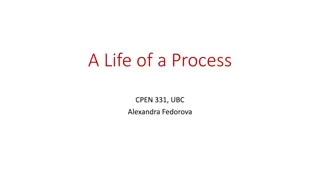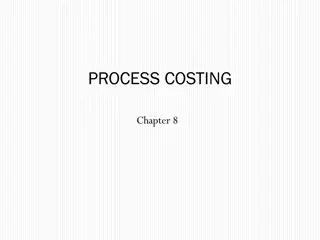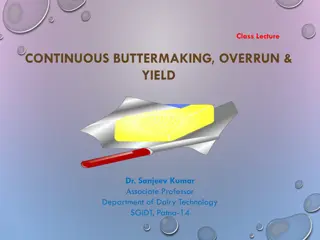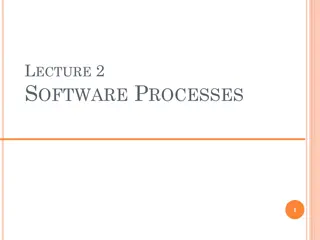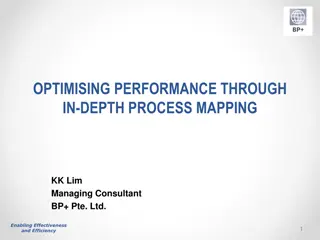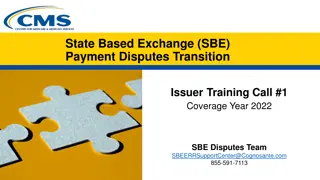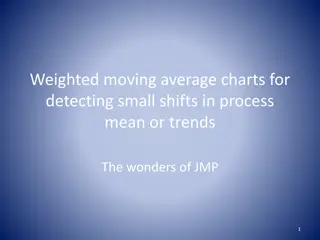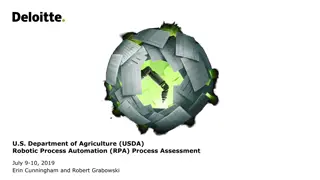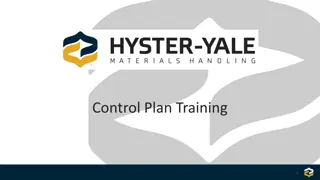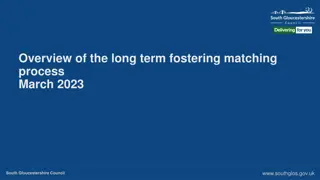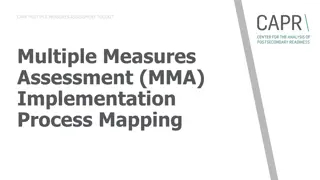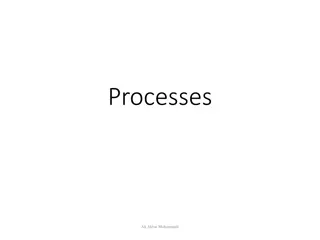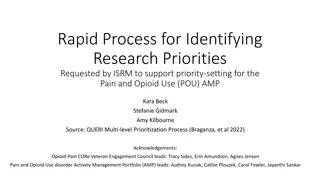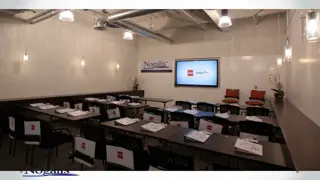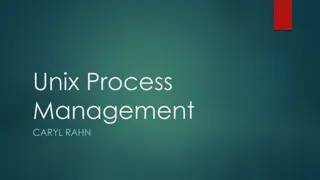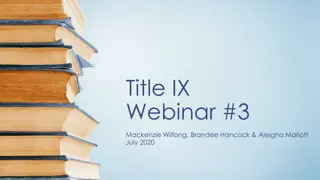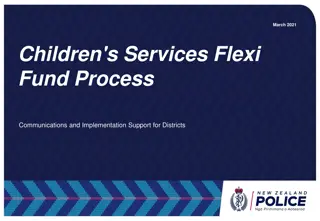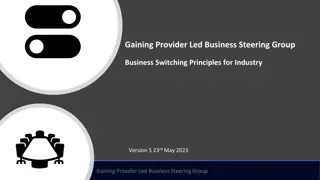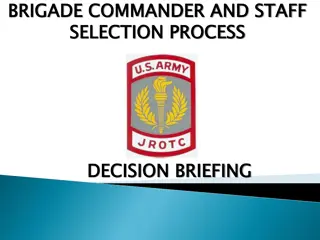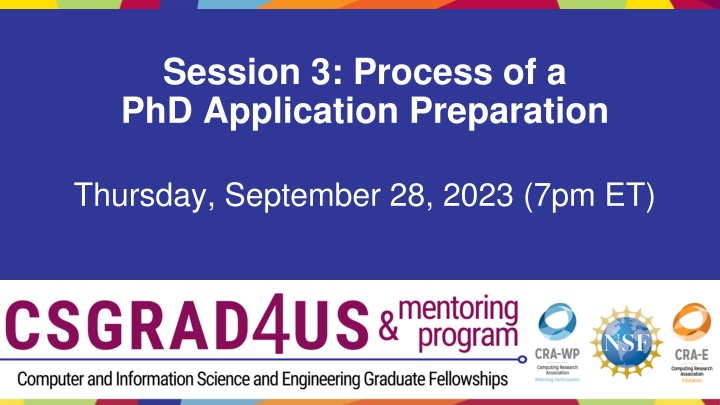
Effective Strategies for PhD Program Applications
Learn how to prepare a strong PhD application, address weaknesses effectively, tailor your writing, and enhance your chances of admission. Understand the importance of asserting your plans confidently and identifying suitable programs that align with your goals. Gain insights into overcoming skill gaps, personal commitments, and more for a successful PhD application journey.
Download Presentation

Please find below an Image/Link to download the presentation.
The content on the website is provided AS IS for your information and personal use only. It may not be sold, licensed, or shared on other websites without obtaining consent from the author. If you encounter any issues during the download, it is possible that the publisher has removed the file from their server.
You are allowed to download the files provided on this website for personal or commercial use, subject to the condition that they are used lawfully. All files are the property of their respective owners.
The content on the website is provided AS IS for your information and personal use only. It may not be sold, licensed, or shared on other websites without obtaining consent from the author.
E N D
Presentation Transcript
Session 3: Process of a PhD Application Preparation Thursday, September 28, 2023 (7pm ET)
Session 3 Learning Objectives Session 2 Preparing a strong PhD application (general guidelines) Summarize SOW comments made Identify what you are looking for in a PhD program Identify potentially suitable programs Understand the admissions process 2
Your SOW comments Abstracting top suggestions made use assertive, active, and positive language ( I plan to start is better than I hope to start ) introduction paragraph styles vary and are often a personal choice don t bury important messages emphasize your strengths, not your weakness address an apparent weakness in your record directly in an informative way (better than have a reader guess) common weaknesses: poor grades, gaps, research ability/potential unclear in descriptions of projects, be outcome oriented describing tasks in detail can tempting but is often distracting 3
don t let the reader guess (e.g., the results of my project were not significant why?) tailoring to each school is good make sure to scrub remnants of other schools keep tailoring to the last paragraph more on your writing pay attention to the flow in paragraphs and overall (e.g., limit the number of timeline jumps) spell out abbreviations have someone check for poor language, typos, overly long and awkward sentences, etc. Reading the comments in the files gives a good perspective on different views and common themes. Thank you for your contributions! 4
CDGrad4US Entry survey administered by the external evaluator (Center for Evaluation & Research for STEM Equity @ University of Washington) email from We appreciate your participation! Please check your spam folder if you have not seen the email. From Name: Erin Carll From Email: noreply@qemailserver.com Reply Email: ecarll@uw.edu Subject: CSGrad4US Evaluation Survey 5
Identifying PhD Programs: Understanding Your Plans, Goals, Needs, Wants What are your research interests? What are your post-graduate aspirations? An academic career? Teaching or research focused? Career in a government research lab? Industrial research or entrepreneurial career? What is your level of academic/professional preparedness? Different CISE PhD programs can have different prerequisites How can preparedness/skill gaps be overcome? What are other personal or professional commitments? 6
Identifying Your Research Area Stated interests are not a final commitment BUT they impact: how the admission committee views your fit which faculty will review/see your application which faculty can be your champion Identify one to two (at most three) research areas should be a research areas in the department subareas can be indicated; do not list your thesis topic What are your interests? What are your strengths? For example, developing systems or methods, experimental design, theoretical or analytical foundations, case studies 7
How specific should my research interests be? Depends on the area, popularity of the area, your interests and background. Examples: programming languages may be specific enough if explained why; not many applicants, not all departments have PL faculty security is too vague as it includes systems, networking, privacy, crypto, software, data, and more AI/ML without more resolution may not get much attention Foundational AI/ML research or applications of AI/ML to area X? 8
Research Interests: Definitive vs Unsure Most programs expect applicants to have definitive research interests Students are admitted to work with a specific professor Includes many top programs Students may change area after more research or course exposure Some programs accommodate switching areas better than others May admit students more holistically to the program May have infrastructure to support student transitions Having a 3-year Fellowship gives you flexibility More time to find your research area/advisor Easier to switch adviser (if need arises) 9
Career Goals May Impact Your Decisions about Research Areas and Programs of Interest PhD career opportunities (covered in Session 1) Industrial or national laboratory positions (research, development, or entrepreneurial) Academic positions (research or teaching oriented) For example: If interested in a teaching focused position, favor programs with teaching opportunities for PhD students. If interested in a position in a government lab, favor programs with active ties and collaborations with government labs. 10
Consider Your Career Goals (A 1-Minute Individual Exercise) Different PhD programs can provide a different preparation for a career after the PhD. Considering your current post PhD career goals, how will/may these goals influence your program choice? 11
Factors to Consider: Collective and Individual Enterprises Student engagement/success Research foci Faculty size Publication Impact Collective View: Program, Department & Institution Individual View: Faculty & Labs Reputation Collaborative network Student life/academic culture Industry engagement Financial support Location Research funding 12
Finding Programs: Using Rankings Popular reputation-based program rankings US News and World Report (updated 2023) (National Research Council (updated 2010; outdated)) 13
Finding Programs: Using Rankings Two researcher developed metric-based program rankings CSRankings by Emery Berger (UMass): based on publications in selective venues. CS Open Rankings (Brown); uses US News, CS Rankings, placement rank and best paper awards Both rankings include faculty listings with areas (can be outdated) 15
rates schools based on all listed areas 16
areas PL and LV selected Cornell expanded to show faculty 17
areas AI and HCI selected + expands to show faculty 19
Finding Programs: Searching By Faculty Not all names generated by ranking will be good matches. Consider: Publication activity, especially in high impact venues Active external funding (e.g., NSF, DOE, Industry) Awards and recognitions, e.g., Best paper and ACM SIG awards, ACM/IEEE Fellows, Industrial Fellowships, Endowed/Named Professorships Service on editorial boards or program committees for high impact venues 21
Computer Science Publishing CS researchers primarily target conference publications Conference (and journal) quality/selectivity vary greatly Learn about publication venues in your areas from Mentors, coaches, letter writers, area advisers, etc. Impact factors, acceptance rates, h-indexes, etc. Conference rankings 22
Understanding Academic Titles as You Search Tenured/Tenure-track Faculty Assistant Professor: untenured, typically a 7-year clock Associate Professor: tenured (Full) Professor: typically 4-12 years after promotion to associate Distinguished ranks: Chaired/Distinguished/Endowed Professor Teaching-focused Faculty Promotion pathway: Assistant/Associate/Full Teaching Professor Typically not tenure-track (long-term contracts) Lecturer, Instructor terminology used by some institutions Some teaching faculty have research programs and advise PhD students 23
Understanding Academic Titles (contd) Post Doc 1-3 year research position with a Faculty Advisor Externally funds to the individual or funded by the faculty advisor Post docs often work with and mentor PhD students; cannot be PhD adviser Research Faculty Research Scientist, Research Professor (with academic rank) Grant-funded, no tenure in some schools, research faculty can serve as Ph.D. advisers Courtesy Faculty Tenured/Tenure-track faculty in another department has collaboration with CS faculty generally not involved in admission; adviser or co-adviser possible 24
Small Group Breakout: Help Alice and Bob! ALICE is interested in secure software systems and a PhD program with few course requirements. Consider: Columbia, U of Florida, Rutgers, Penn State, BU BOB: Bob is interested in NLP and a program with NLP related graduate courses. Consider: UC Santa Cruz, U of Michigan , Wisconsin, UC San Diego, U of Utah 1. Recommend two schools in each set to explore further 2. Optional: Identify 1-2 possible advisers in a recommended school 3. Reflect upon lessons learned about the process of finding a program from this brief exercise. Your Breakout Group name will indicate Alice (A) or Bob (B) If your group really want to switch, you can do so 25
Report Back Alice: Columbia, U of Florida, Rutgers, Penn State, BU Bob: UC Santa Cruz, U of Michigan , Wisconsin, UC San Diego, U of Utah 28
The PhD Admissions Process 29
Typical Admission Processes Undergraduates admitted by School s Admissions Office Graduate students admitted by program/department (graduate school oversight) Departmental Graduate Admissions Committee Committee compiles and reviews applicant portfolios Asks areas and faculty to provide further evaluation Faculty often champion strong students in their areas Faculty may conduct remote or in-person interviews Most departments invite applicants to visit after making decisions Admitted applicant decisions typically expected by April 15th 30
Common Applicant Review Procedures Individual faculty selectively review applications Who reviews often depends on who has space in lab and has funding Faculty look at applicants interested in their research area Good match with my needs? Possibility that few faculty look at a given application Higher supply of applicants in an area means faculty can be more selective expect more experience/knowledge of an applicant If multiple faculty are interested in an applicant, they may coordinate interviews/outreach to applicant Program admits an applicant if all the following are true applicant has the potential to succeed in the program a faculty wants to work with them funding: RA (through adviser), TA, fellowship 31
Admissions Process Demands: An Example University of Washington, Computer Science Per applicant materials to review: Transcripts 3 Recommendation letters R sum or CV Personal statement CS Rankings: 8 US News: 5 CS Open Rankings: 6 2023 Statistics: 3,000 applications 150 offers Expectation of 50-60 enrollees https://www.cs.washington.edu/academics/phd/admissions/faq#chances 32
How many Applications to Submit? Acceptance depends on many factors, including Capacity: program s faculty and funding capacity for new students Overall strength of your application uniqueness of your background your research record Competition number of competitive applicants (in the particular area) popularity of your target research area (e.g., 60% of applicants interested in ML/AI) Serendipity: who reads your application 33
How many Applications to Submit? (contd) Top applicants do not always get an admission acceptance rates are generally not public for domestic students, expect single digits for top 10 programs about 20-25% for next 10 then about 30%+ Apply to 8-12 programs as a minimum maybe fewer if you already have the support of a faculty member 34
How many Applications to Submit? (contd) Discuss number of programs with your coach (area adviser, if you have one) General recommendation: 3-4 Very Good chance programs 3-4 Good chance programs 3-4 Reach programs Programs have an application fee CSGrad4US will cover up to $750 of your application fees fee waiver exists (apply early) 35
What happened in cohorts 1 and 2? Reasons for no acceptance 1. not listening to the coach 2. applying to only 3-4 programs with narrow research interests 3. applying to only 3 programs with significant geographical constraints 4. applying to 8 or more programs, with programs rated as highly selective 5. mixed up faculty in CS with faculty in other I-school departments 6. narrow interests in highly competitive research areas (e.g., AI, ML, quantum) Having an admission and applying again none in cohort 1 about 3 in cohort 2 36
Our advice Communicate with your coach If there seems to be a lack of communication, let us know Ask at least two experience people about your school choices Broaden research interests Be broader research-wise and apply to more programs Minimize geographical constraints Take a broader view and apply to schools that could be possible 37
Our advice Applying to programs rated as highly selective Understand which programs are highly selective in what areas. Ask. Don t assume. Interested in AI, ML, quantum? Understand that there is more competition. Have the best application material possible. Few departments have a strong presence in quantum. For AI, apply to 12+ programs Pay attention to faculty in multiple departments It can be confusing. In case of doubt, ask. Being listed under faculty may not mean access to admission files 38
Contacting Potential Advisors Very common: Applicants are accepted if a faculty commits to advise Before reaching out to faculty: Do your homework! Are you familiar with their recent research activities? Have you reviewed samples of their papers or presentations? What related work might you like to do? Not: Dear X, I am very interested in your research area Send an email (include your CV) and (briefly) introduce yourself State that you have a fellowship (include a 1-pager about CSGrad4US) If you graduated 5+ years ago, consider highlighting relevant working experience Talk to your coach on what to highlight in the email 39
Contacting Potential Advisors After your email If a positive response: Request a meeting (call or Zoom) If no response, send a follow up email (email gets buried) If your letter writers (or coach or area adviser) know faculty of interest, ask whether they would make contact and advocate for you 40
Questions? 41
Next Week ... Panel 1: What I Wish I Would Have Known Before Applying (advanced PhD students share their experiences) Thursday, October 5, 2023 @ 7PM EST 42


